|
Here are all the paintings of Paul Gauguin 05
| ID |
Painting |
Oil Pantings, Sorted from A to Z |
Painting Description |
| 58978 |
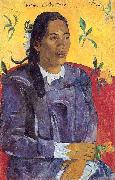 |
Woman with a Flower |
Woman with a Flower, (1891)
|
| 23296 |
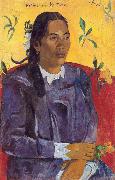 |
Woman with a Flower (nn03) |
1891 Oil on cnavas 70 x 46 cm
27 1/2 x 18 in Ny Carlsberg Glyptotek Copenhagen |
| 29094 |
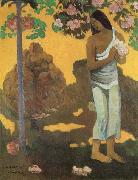 |
Woman with Flowers in Her Hands |
mk65
1893
Oil on canvas
36x29"
|
| 1338 |
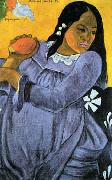 |
Woman with Mango |
1892
Baltimore Museum of Art, Baltimore |
| 57409 |
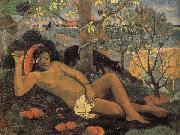 |
Woman with Mango |
mk256 1896 years painting 97 x 130 cm |
| 1330 |
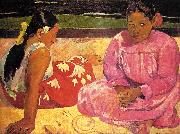 |
Women of Tahiti |
1891 69 x 91 cm
Mus??e d'Orsay, Paris
|
| 30862 |
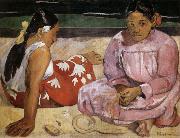 |
Women of Tahiti |
mk68
Oil on canvas
Paris,Orsay Museum
1891
Tahiti
|
| 57379 |
 |
Words of the devil |
mk256 1892 years painting 77 x 36 cm |
| 57324 |
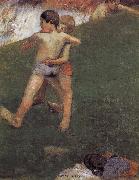 |
Wrestling kids |
mk256 1888 years painting 93 x 73 cm |
| 11633 |
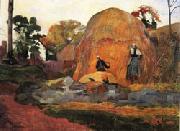 |
Yellow Hay Ricks(Blond Harvest) |
1889
2' 5'' x 3'(73.5 x 92.5 cm)Gift of Mrs.Huc de Monfreid,1951 |
| 57420 |
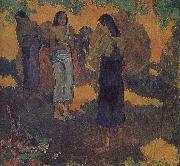 |
Yellow background, three women |
mk256 1899 years painting 68 x 74 cm |
| 57352 |
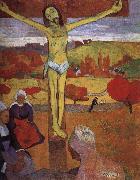 |
Yellow Christ |
mk256 1889 years painting 92 x 73 cm |
| 57349 |
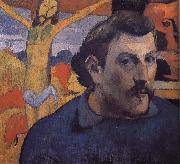 |
Yellow Christ's self-portrait |
mk256 1889 years painting 38 x 46 cm |
|
|
|
Prev 1 2 3 4 5
|
|
| Paul Gauguin
|
| French
1848-1903
Paul Gauguin Art Locations
(born June 7, 1848, Paris, France ?? died May 8, 1903, Atuona, Hiva Oa, Marquesas Islands, French Polynesia) French painter, sculptor, and printmaker. He spent his childhood in Lima (his mother was a Peruvian Creole). From c. 1872 to 1883 he was a successful stockbroker in Paris. He met Camille Pissarro about 1875, and he exhibited several times with the Impressionists. Disillusioned with bourgeois materialism, in 1886 he moved to Pont-Aven, Brittany, where he became the central figure of a group of artists known as the Pont-Aven school. Gauguin coined the term Synthetism to describe his style during this period, referring to the synthesis of his paintings formal elements with the idea or emotion they conveyed. Late in October 1888 Gauguin traveled to Arles, in the south of France, to stay with Vincent van Gogh. The style of the two men work from this period has been classified as Post-Impressionist because it shows an individual, personal development of Impressionism use of colour, brushstroke, and nontraditional subject matter. Increasingly focused on rejecting the materialism of contemporary culture in favour of a more spiritual, unfettered lifestyle, in 1891 he moved to Tahiti. His works became open protests against materialism. He was an influential innovator; Fauvism owed much to his use of colour, and he inspired Pablo Picasso and the development of Cubism.
|
|

